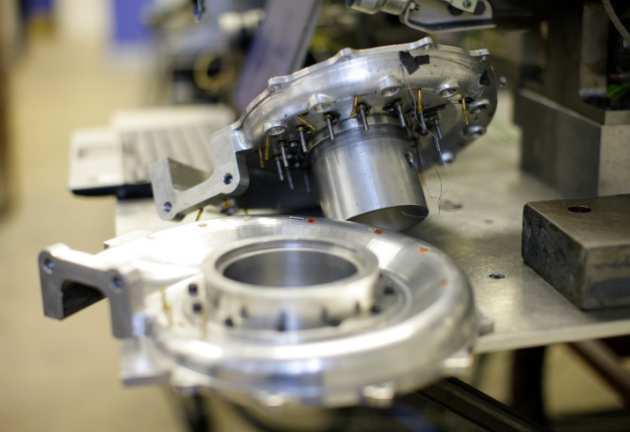 Significant improvements in the performance and energy efficiency of internal combustion engines are possible by use of turbomachinery. Turbochargers are able to recover energy from hot exhaust gases and use this to compress the inlet air to the engine, increasing efficiency and power density. Additional benefits are realised by downsizing of the engine whilst maintaining performance levels; this can only be achieved by large pressurisation through turbocharging and supercharging.
Significant improvements in the performance and energy efficiency of internal combustion engines are possible by use of turbomachinery. Turbochargers are able to recover energy from hot exhaust gases and use this to compress the inlet air to the engine, increasing efficiency and power density. Additional benefits are realised by downsizing of the engine whilst maintaining performance levels; this can only be achieved by large pressurisation through turbocharging and supercharging.
High speed dynomometer for unsteady turbine testing
In the past 10 years we have developed a high speed dynamometer for turbocharger research, enabling a very wide range of test conditions to be achieved. This provides a far more comprehensive understanding of turbine performance away from design point, giving a direct insight into the flow conditions in the fluid. The dynamometer is integrated into a cold gas stand test facility which includes a chopper plate for producing pulsating flow conditions similar to those found in the exhaust of a real ICE. The current state of the art in the design of engine air management systems only makes use of steady state test data (‘maps’). This approach may lead to sub-optimal component choices during turbine matching. By understanding the unsteady performance, we aim to improve the overall system efficiency by better matching.
Active control turbocharging
A novel, patented technology called active control turbocharging (ACT) has been developed in the research group, based on a variable geometry nozzle set with fast actuation which is tuned to enable maximum energy extraction from the unsteady pulsating engine flow. This makes better use of the exhaust energy of the engine than currently available turbochargers do.
Modelling strategies for improved turbocharger selection and matching
The need to provide reduced order and yet accurate models for optimisation of components is well recognised. My group has contributed to this area by development of accurate boundary conditions for unsteady flow simulations. The availability of detailed unsteady flow experimental data clearly allows validation of methods. The results have made their way into the design codes from industry.
Heat transfer and thermodynamics
The research group also has a broad interest in heat transfer in thermodynamics generally. We have investigated gas turbine and fuel cell hybrid cycles, heat transfer in high temperature fuel cells, film cooling of turbine blades, novel cooling systems for gas turbines and electrical machines for example using jet impingement.
Electrical machines
We have a growing interest in electrical machines (motors and generators) including two projects applying high speed electrical machines directly to turbocharging supercharging, and two students investigating thermal analysis and heat transfer in electrical machines for hybrid and electric vehicles.